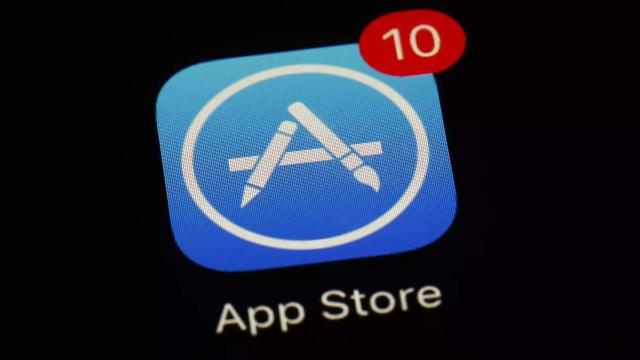The US Supreme Court agreed on Monday to consider an appeal in a long-delayed case that revolves around whether Apple’s App Store policies constitute a monopolistic practice that violates antitrust laws.
Photo: Patrick Semansky (AP)
Before we can get to that issue, however, the courts must answer a question that at first seems simple and clean but gets messy once you start tugging at the strings: Do you actually buy your apps from Apple?
Since 2008, it’s been Apple’s policy that developers must go through an approval process and only distribute apps through the official app store for its mobile operating system, iOS. Consumers are discouraged from using workarounds to install apps by any other means, such as jailbreaking. And Apple charges developers a 30 per cent commission on the revenue each app generates.
Beginning in 2011, a group of consumers has attempted to bring a class-action case against Apple, alleging that its system amounts to a monopoly. The result is a case that could have wide implications for tech businesses that rely on commissions from third-party sales. And if it is allowed to proceed through the courts, it could mean the end of Apple’s walled garden.
Last year, the American Bar Association broke down the circuitous history of the case, Pepper v. Apple Inc., and the various legal mechanisms that the courts will have to review. Without getting too buried in the statutory minutiae, the case was hung up in appeals courts over technicalities regarding a conspiracy charge that included AT&T but didn’t name the telecom as a defendant.
The Ninth Circuit Court of Appeals eventually decided to give that sticking point a pass after the conspiracy complaint was removed. It’s now centred on the more fundamental question of whether consumers can legally blame Apple for the prices that are charged in its app store.
The Ninth Circuit decided that the case could be heard, but Apple (and the Trump Administration) argues that court precedent shows App Store customer Robert Pepper and his fellow plaintiffs can’t even bring the case against the Cupertino giant. That’s what the US Supreme Court is being asked to decide – not whether Apple is guilty of anti-competitive practices, but whether the case can even technically go forward.
The plaintiffs argue that Apple illegally monopolised the distribution of iPhone apps and that the commissions it charged to app developers inflate the prices consumers pay for apps.
Apple (and the US DOJ) argue that cases such as Illinois Brick and Hanover Shoe set a precedent in which Apple would just be considered a middle-man that has no antitrust liability in this situation.
In those previous cases, the courts found that a plaintiff must be a “direct purchaser” from the defendant in an antitrust case. Apple argues that the defendant is seeking damages based on the “pass-on theory” – that it overcharged a third party and that the third party, not Apple, passed on the charge to consumers – which would render the case moot, were the court to agree with the company.
The Ninth Circuit panel argued that Apple directly sold developers’ apps to consumers and is the proper defendant in this case, based on Illinois Brick‘s definition: “the distributor who supplies the product directly to the plaintiffs, rather than the producer of the product, is the appropriate defendant in an antitrust suit.”
In its argument to allow Pepper to move forward, the Ninth Circuit panel pointed to a previous ruling by the Eighth Circuit court regarding Ticketmaster. It asserted that the Eighth Circuit’s decision that plaintiffs didn’t have legal standing against Ticketmaster was wrong.
“Whether a purchase is direct or indirect does not turn on the formalities of payment or bookkeeping arrangements,” the Ninth Circuit wrote in its opinion. “The key to the analysis is the function Apple serves rather than the manner in which it receives compensation for performing that function.”
Boiled down, this is a question of whether Apple is creating a monopoly through its platform and developers’ are, therefore, the ones who pass on inflated prices to consumers; or if developers use Apple’s platform to create a new product that Apple then sells directly to consumers through a marketplace it controls a monopoly over; or if both of those scenarios amount to the same thing.
The confusion has inspired previous efforts to modernise antitrust laws that, so far, have failed.
A decision against Apple in the long-run could set off questions about other companies that collect set commissions from third-parties, such as StubHub or eBay. Bloomberg cites “a lawyer pressing the case” who believes a decision against Apple would leave the company on the hook for “hundreds of millions of dollars”.
We reached out to Apple for comment on the case but didn’t receive an immediate reply. Pepper v. Apple, Inc is set to go before the Supreme Court in October.
[SCOTUS]
